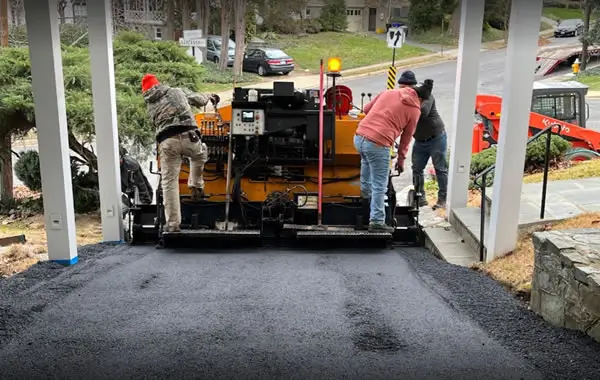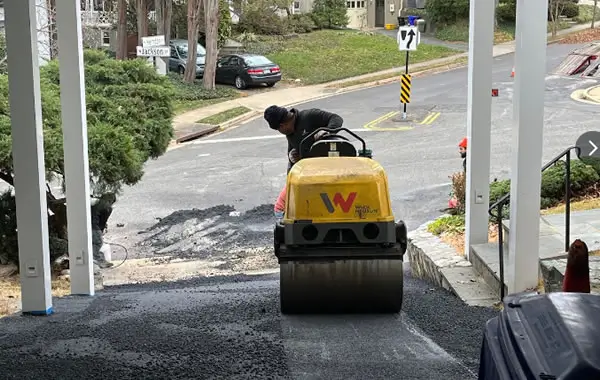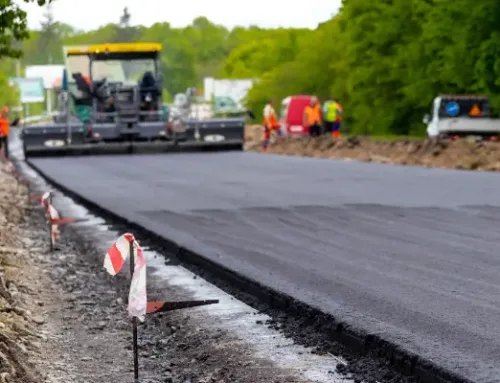Asphalt paving refers to the process of using asphalt, a black, sticky, and highly viscous liquid or semi-solid form of petroleum, to construct or resurface roads, driveways, parking lots, and other paved surfaces. Asphalt is a popular choice for paving due to its durability, flexibility, and ability to withstand various weather conditions.
The asphalt paving process typically involves the following steps:
- Site Preparation: This involves clearing the area of any obstacles, debris, or existing pavement. The surface is then graded to ensure proper drainage.
- Sub-base Installation: A stable sub-base is crucial for the longevity of the asphalt pavement. This may involve the addition of aggregate materials and compaction to create a solid foundation.
- Asphalt Mix Production: Asphalt is produced by mixing bitumen (a sticky, black, and highly viscous liquid) with aggregates such as crushed stone, gravel, or sand. This mixture is heated to create the asphalt concrete used in paving.
- Paving: The hot asphalt mix is transported to the site and spread over the prepared surface using specialized equipment, such as pavers. The material is then compacted to achieve the desired density.
- Surface Finishing: After compaction, the asphalt surface may be finished to ensure a smooth and even texture. This may involve the use of rollers or other equipment.
- Curing: The asphalt needs time to cool and harden, a process known as curing. During this phase, it gains its final strength and durability.
Asphalt paving offers several advantages, including cost-effectiveness, ease of maintenance, and resistance to various weather conditions. However, it is essential to conduct regular maintenance, such as sealing and crack filling, to extend the life of the asphalt surface. Additionally, proper design and construction practices are crucial to ensuring the longevity and performance of asphalt pavements.
John Donohue Asphalt Paving is a premium Asphalt Paving Company in Northern Virginia. With over thirty years of experience, John Donohue Asphalt Paving has built a strong reputation of honesty, reliability and dedication to its customers and their needs. We have clients throughout Northern Virginia including Loudoun, Fairfax, Prince William, Arlington, Winchester, Essex counties and surrounding areas. GIVE US A CALL TODAY AT 571-255-9187 for a FREE ESTIMATE




